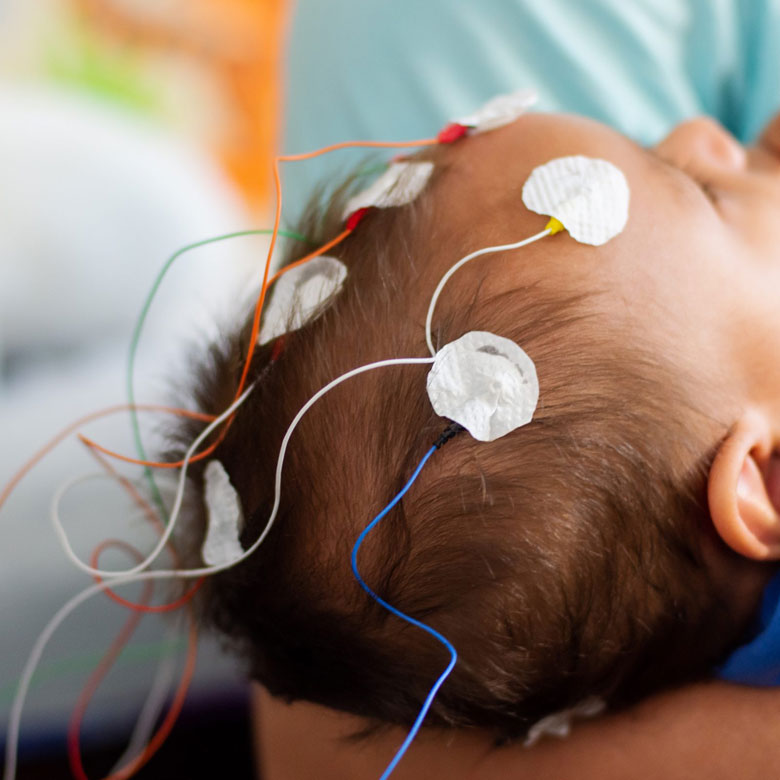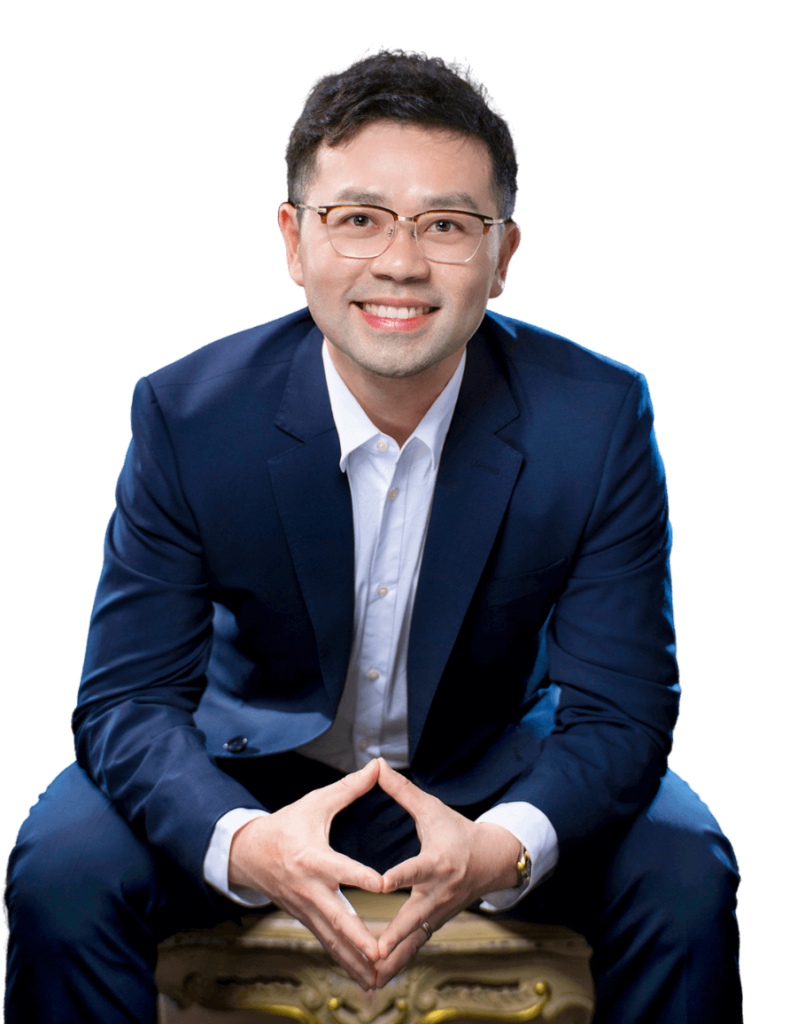What is an EEG?
Brain cells communicate in complex ways through electrical signals. An electroencephalogram (EEG) is a non-invasive and painless diagnostic procedure that monitors and records these electrical impulses. This test provides valuable insights into the brain’s activity and patterns, much like how your iPhone’s software and applications operate. It helps neurologists understand the brain’s functions and identify any potential abnormalities.
How can the EEG do?
The electroencephalogram (EEG) is an invaluable diagnostic tool in assessing children who experience epileptic seizures or are diagnosed with epilepsy. This specialized test plays a crucial role in differentiating various types of epileptic seizures, allowing healthcare professionals to pinpoint the specific nature of the child’s condition. By analyzing the brain’s electrical activity, the EEG can provide critical insights that aid in forming an accurate diagnosis and crafting a tailored treatment plan for young patients with epilepsy.
What does the EEG involve?
You are welcome to stay by your child’s side throughout the entire testing process. Our skilled technologist will gently attach a few small sensors to your child’s scalp using a comfortable sticky paste, which will capture the intricate brain wave signals. Additionally, two small sensors will be placed on your child’s chest to monitor their heart rhythm. This initial setup may take up to 15 minutes, ensuring precision in capturing valuable data.
To achieve the most accurate results, we kindly ask your child to remain as still and quiet as possible during the recording. For preschool-aged children, bringing along a beloved toy or an engaging book can make all the difference in keeping them occupied and calm. For infants, having a bottle or a small drink on hand can help soothe them during the session.
In a standard EEG recording, the duration can last up to 30 minutes. There are specialized types of EEG, such as the ‘Sleep EEG,’ which includes a segment where your child is allowed to sleep, and the ‘Sleep Deprived EEG,’ which is designed for specific assessments. During the sleep or sleep-deprived EEG, oral melatonin, a natural sleep hormone, may be recommended to help your child fall asleep.
Your comfort and your child’s well-being are our top priorities as we navigate this process together.
What is a sleep deprived EEG?
This is an EEG recording captured during the sleep cycle. Sleep deprivation refers to a state in which an individual experiences less sleep than their usual patterns. An EEG taken during this sleep-deprived state reveals distinct neural patterns that differ markedly from those observed during normal, restorative sleep. These variations in brain activity provide valuable insights into the consequences of insufficient sleep on our mental and physical well-being.
During the sleep or sleep-deprived EEG, oral melatonin, a natural sleep hormone, may be recommended to help your child fall asleep.
Before the EEG
Please inform us if your child has any skin conditions or allergies.
Hair styling products may interfere with the recording, so please avoid using gel or mousse in your child’s hair before the EEG.
If you suspect that your child has head lice, please contact us, as recording may not be possible if head lice are present. If your child takes any medication, they should continue to take it as usual, unless directed otherwise by their doctor.
After the EEG
Following the completion of the recording session, we will gently apply either warm water or a specialized adhesive remover along with a fine-toothed comb to carefully detach the sensors from the scalp. This process may take up to 10 minutes, ensuring that we remove everything with care and without discomfort.
The EEG data will be captured digitally on a computer, where it will undergo thorough analysis and interpretation by Dr. Yeo, providing valuable insights into the brain’s electrical activity.
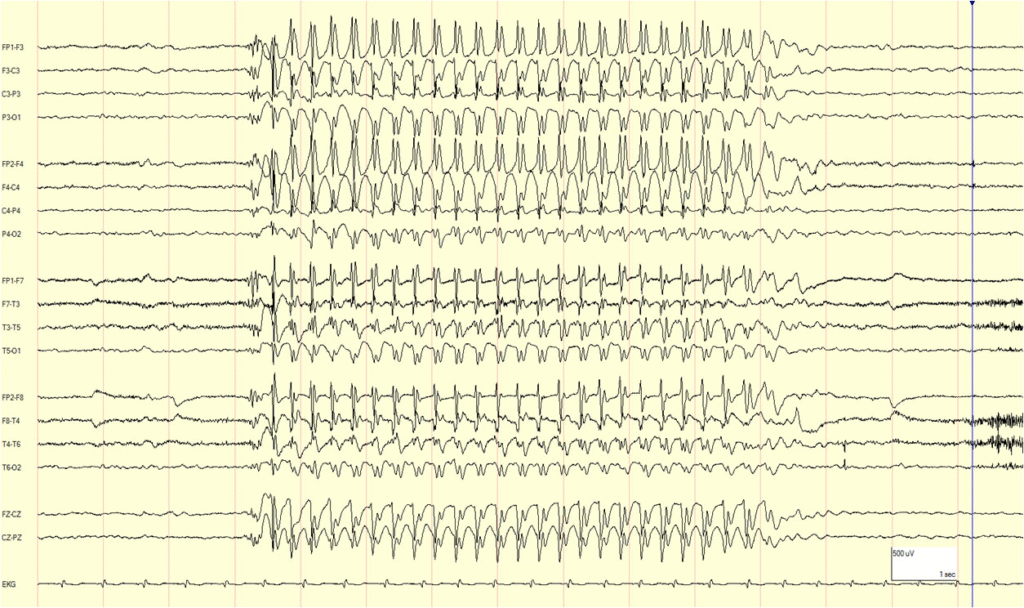
An EEG example of a child with Childhood Absence Epilepsy
(https://www.epilepsydiagnosis.org/syndrome/cae-eeg.html)
(https://www.epilepsydiagnosis.org/syndrome/cae-eeg.html)
If you have any further questions, you can schedule an appointment today with Dr Yeo.

